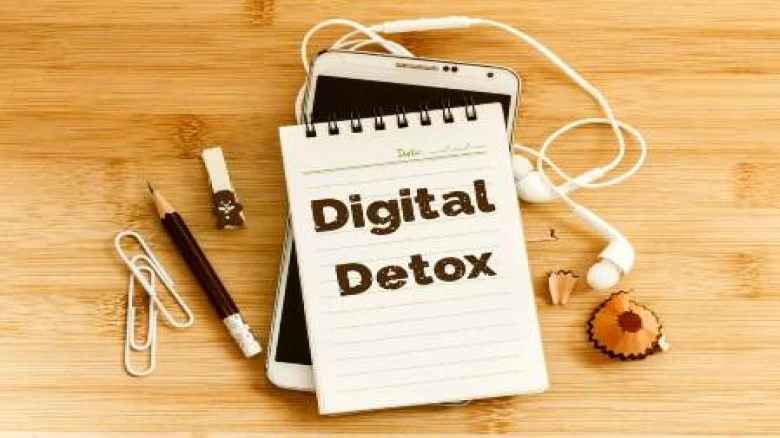National

Excessive use of technology can lead to social isolation and make it difficult to build real-life contacts. Taking a break from electronic devices can improve social connections and bonds.
Digital Desk: It's easy to become overwhelmed
and addicted to technology in today's digital world. While technology has
undoubtedly made our lives easier in many ways, too much screen time can be
detrimental to our brain health and overall well-being. A digital detox, or a
break from technology, can be an effective approach to reboot and refuel your
brain. In this context, let's look at the benefits of digital detox and offer
some practical advice on how to cut back on screen time while keeping your
brain young and healthy.
We live in a hyper-digital world where we are
constantly glued to screens. "Whether at work, on a walk, while eating a
meal, or while waiting in queue, we can easily pull out our phones to check
emails, social media updates, and the news." According to a RedSeer
analysis from 2022, Indians spend an average of 7.3 hours per day on their
smartphones. That's almost one-third of the day," says Prakriti Poddar,
RoundGlass' Global Head of Mental Health and Wellbeing.
Overuse of digital devices
dilutes our concentration and depletes our mental reserves. Excessive screen
usage has been recognised as a risk factor for depression, and researchers
estimate that it will significantly raise dementia risk in the future years.
Overuse of social media has also been connected to low self-esteem, anxiety,
and poor sleep quality.
"Despite these consequences, the
solution isn't to abandon our devices entirely. The role of technology in
society is not going away. Instead, we must learn to strike a balance, reaping
the benefits of technology without allowing it to take over our life and
well-being," Poddar adds.
A digital detox is a terrific way to lessen
the impact of technology on your mental health. It entails taking intentional
breaks from all screens and devices, even if only for an hour. "Digital
detox" involves unplugging or taking a break from technology and digital
gadgets such as cell phones, computers, tablets, and social media, according to
Dr Babina NM, Chief Medical Officer, Jindal Naturecure Institute, Bangalore. It
means detaching from digital activities and intentionally disconnecting from
the digital environment."
Here are reasons why digital
detox is necessary:
1. Improved focus
Without continual alarms and notifications, or the need to pick up your
phone and scroll, your mind can concentrate more on the topic at hand.
2.
Stress reduction
"Taking a break from the digital world on a regular basis can help
revitalise your nervous system and make you feel more present." "It's
also important to take a break from the stream of polarising statements and
idealised images that are frequently used to capture our attention,"
Poddar believes.
3.
Mental Well-Being
The constant use of technology can lead to anxiety, tension, and despair.
"A break from electronic devices can help improve one's mental health and
well-being," Dr Babina NM adds.
4.
Improved Relationships
Excessive use of technology can lead to social isolation and make it
difficult to build real-life contacts. Taking a break from electronic devices
can improve social connections and bonds.
5.
Better sleep
Blue light and sleep are not compatible. "Screen use can disrupt
melatonin production, making it more difficult to fall asleep." Not to
mention that utilising a technology meant to keep you hooked will cause you to
sleep later. Poddar suggests powering down an hour before bed to enhance your
sleep patterns, which will lead to better general health and wellbeing.
6. Better physical health
“Constant use of digital
devices can result in bad posture, eye strain, and other physical health
issues. Taking a break from screens can help minimize your risk of developing
certain health issues,” believes Dr Babina NM.
7.
Reduced chance of dementia
A digital detox allows you more time to cultivate genuine social
interactions, which have been linked to a lower incidence of dementia. To feel
more connected to family and friends, make the dinner table a phone-free zone.
8.
Increased Productivity
Scrolling, like, and publishing have all become extremely time-consuming
activities. Consider what you could accomplish if you had an extra 7.3 hours in
your day. Setting your phone aside, even for an hour, will allow you to focus
on what needs to be done.
Leave A Comment